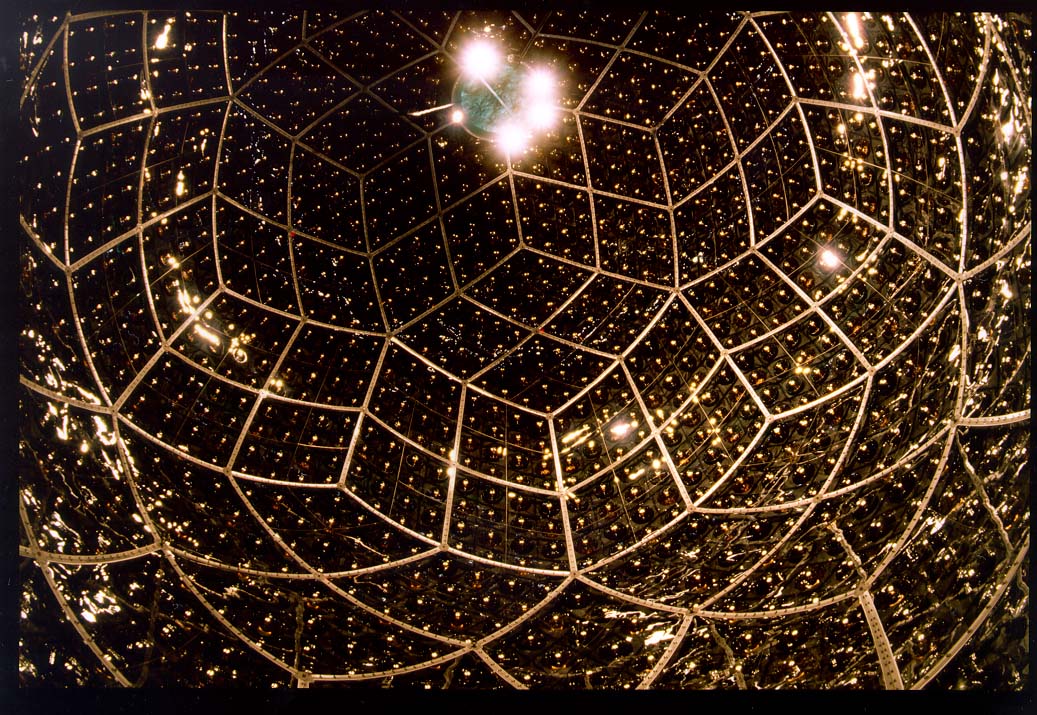Welcome to RCNS 留学生インタビュー
Moritz Niklas Neuberger
- Mar. 25, 2020
- メンバー
名前:Moritz Niklas Neuberger
国籍:ドイツ
出身校:ミュンヘン工科大学
趣味:カッコイイ写真を撮ること、どこへ行くか決めずに自転車旅行をすること
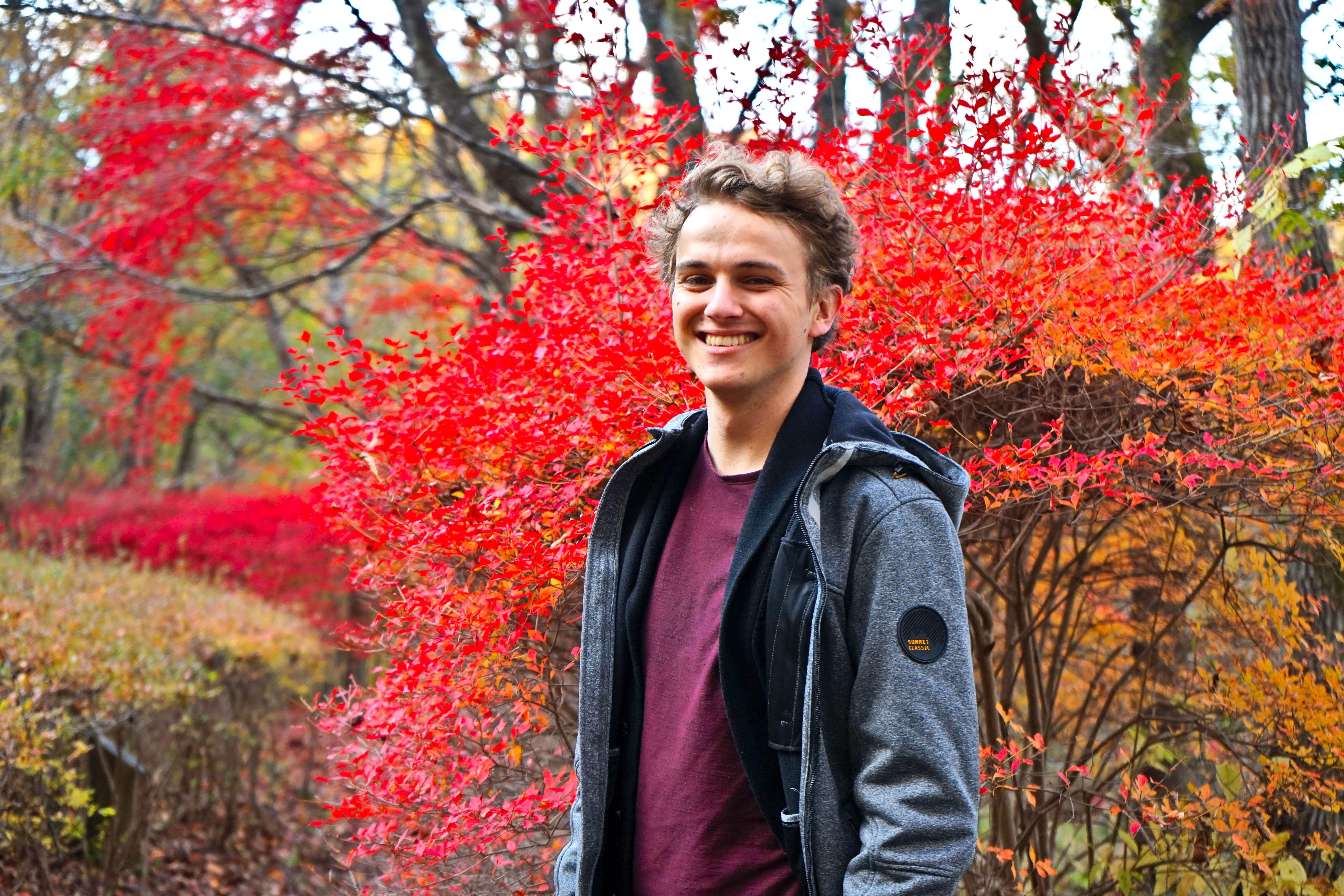
紅葉の前で記念撮影
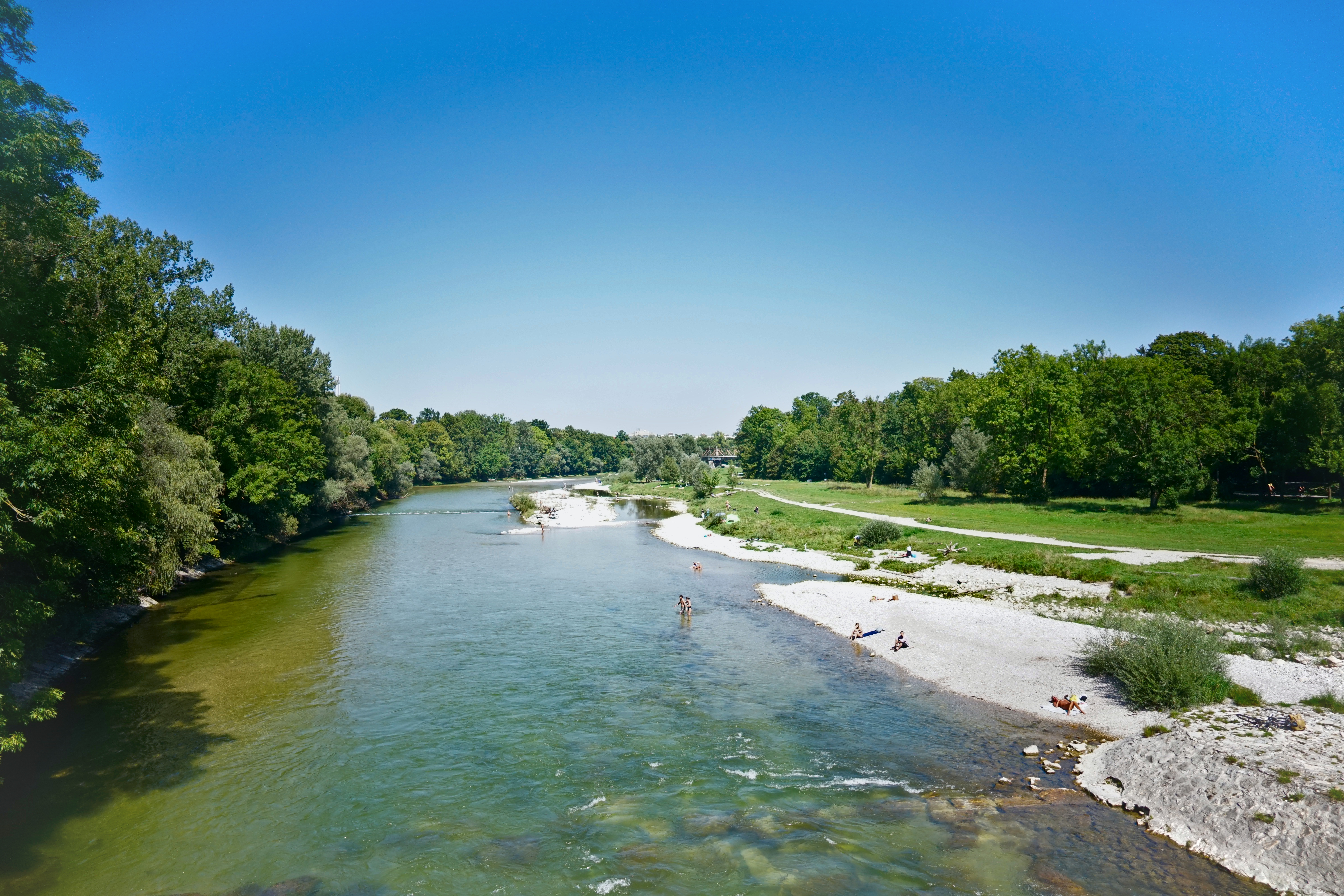
ミュンヘンを流れているイザール川。夏には大勢の人々が寝そべったり、泳いだりしています。
Q1. 母国のドイツについて聞かせて下さい。
私は、人生のほとんどを西ドイツのミュンスターで過ごしました。日本の基準からすると、ミュンスターは、人口約20万人の比較的に小さい市です。が、長年連続でドイツ国内で最高品質の生活をしている都市の1つとして投票されました。たくさんの公園があり、夏には日光浴をする場所もたくさんあります。しかし、また、親しみやすく、皆が互いを詳しく知っていると感じるのに十分小さい市です。ケルンやデュッセルドルフに来た際は、特に立ち寄って見て下さい。日帰りか2日間の旅をする価値が絶対にあります。
次に、進学の為に東南ドイツにあるミュンヘンへ移りました。そこは、私が育った場所よりも、かなり伝統的で保守的な地域です。しかし、ミュンヘンは、住んでみると、とても開放的で活動的な場所です。ミュンスターに比べ、人口約150万人(ドイツで3番目に大きい都市)の非常に大きい都市です。それでも、とても住みやすい良い都市です – 特に自然を楽しむには。ミュンヘンにも、たくさんの公園があり、地元住民は過度に利用しています。夏にイングリッシュガーデンを自転車で通り過ぎると、日差しの下に横たわっている人の塊で芝生が全く見えません。あと、ミュンヘンにはドイツ全土内で最も大きな日本人コミュニティーのMunich Houseがあり、これは、たくさんの伝統的な日本料理レストランがあることを意味します。
そして、ミュンヘンは、とても歴史的な場所でもあります – 良いも悪いも。何百年前に元々建てられた古い建物をたくさん見ることが出来ます。また、有名なドイツ人作家や、フラウンホーファー(ヨゼフ・フォン・フラウンホーファー)のような科学者らの足跡をたどることが出来ます。一方で、ミュンヘンは、歴史上かなり暗い部分もあります。国家社会主義の恐怖はどうだったか、どのように、その主義がドイツ国内を支配したかを知りたい人々にとって、こういったトピックについて多くの博物館が存在します。ミュンヘンは、Hitlerの権力への追求下で、彼を初めに支持した市の1つです。Hitlerは、ミュンヘンにかなり長く住んでおり、ここに、国家社会主義ドイツ労働者党(NSDP:National Democratic Party of Germany)が設立されました。 そして、中心街からほんの20kmの場所、ダッハウの隣の市に強制収容所が建てられました。今日、この収容所は、博物館の中に作られ、毎年たくさんの訪問者が訪れます。ドイツ人が、どのように国家社旗主義の犠牲者へ栄誉を授けようとしているか、どのように、この時代について公衆へ知らせようとしているか、非常に多くの博物館が素晴らしい手本となっています。私は、このような恐ろしい事が二度と再び起きないことを願います。
Q1. Please tell us about your country Germany.
Most of my life I lived in the west German city of Muenster. For the Japanese standard, Muenster is a relatively small city with a population of about 200,000. However, it was voted to be one of the cities with the highest quality of live in Germany for many years in a row. It has a lot of parks and a lot of places to sunbath in the summer. But it’s also small enough to have a feeling of coziness and familiarity with everyone else. I can only recommend a visit there especially when you visit Cologne or Düsseldorf. It’s definitely worth a day-trip or two.
For my studies I moved to Munich in the south east of Germany. The part of the country it is situated in is a lot more traditional and conservative than the one I grew up in. Munich, however, stand out by being a very world open and active place to live in. Compared to Muenster, Munich is quite a lot bigger with a population of about 1,500,000 (third biggest city in Germany). But never the less it is still a very nice city live in – especially when you enjoy nature. Munich has a lot of parks and the local population uses them excessively. When you bike through the English Garden in the summer you usually can not see the grass anymore as its completely packed with people lying in the sun. Additionally, Munich houses of the biggest Japanese communities in all of Germany which means you have a lot of traditional Japanese restaurants there.
Munich is also a very historic place – for the better and the worse. On the one hand, you can see a lot of old buildings in Munich being originally build hundreds of years ago. You can also follow in the foot step of some of the most famous German authors or scientists like Fraunhofer. On the other hand, Munich also has a quite dark side in history. For everyone that wants to know more about how the horrors of national socialism and how it was able to get grip in Germany, Munich has a lot of museums regarding these topics. Munich was one of the first cities to support Hitler in his pursuit to power. Hitler lived here for quite a long time and here the NSDP was found. Additionally, only 20 km form the city center, in the next city of Dachau, a concentration camp was set up. Today this territory was made into a museum with a lot of visitors every year. This and the numerous museums give a great example of how Germans try to honor the victims of national socialism and inform the public about it this time. Hopefully something horrific like that never happens again.
Q2. 趣味について聞かせて下さい。
んん、趣味ですか。私は、割と多くのことに興味があります。ただ、興味の中心が、時々、とてもすぐに変わってしまいます。
昨年、写真にハマりまして。CERNへの小旅行のために去年、私は高いカメラを買いました – これはとても良い投資となりましたね。どのようにカメラを正しく使うかを読み込むのに多くの時間をかけ、今では、自信を持って写真を撮ることが出来ます。このインタビュ記事に何枚か撮った写真を載せますね。
他には、本屋さんへ時々行って、英語セクションをただ見て回って、これまで聞いたことがなかったり、私自身がびっくりさせられる海外の作家を見つけたりします。日本文学の村上春樹や夏目漱石に、どう興味を持つことになったのかが、これです。
あとは、音楽をたくさん聴きます。しかし、ここ数年、私の音楽の好みはあまり変わっていなくて、少々困っています。もしお勧めの音楽があったら、どうか教えて下さい。どんな提案もウエルカムです!
Q2. Please tell us about your hobbies.
Puh, hobbies. Well, actually have quite a few interests. It’s just that my focus changes sometimes very rapidly between them.
In the last year I got really into photography. For my excursion to the CERN last year I even bought a n expensive camera – a very good investment as it turns out. I have spent a lot of time reading into how to properly use it and I am very proud of the pictures I can produce today. I added some pictures at the end of the document.
Another thing I sometimes do is to go into a book store and just look through the English language section to find authors of other countries that I have never heard of before and just let myself be surprised by them. That’s how I got into Murakami or Sōseki in Japanese literature.
I also listen to a lot of music. However, in the last few years my musical tastes haven’t really changed that much and I’m a bit bothered by that. So please, if you have any recommendations, please do not hesitate to write me – I’d be very welcome for any suggestions!
Q3. どのように物理に興味を持つようになりましたか?
これは、意外と良い質問ですね。特に物理に興味を持つようになった特別な出来事はなかったと思います。私が育った環境によるものでした。私の父は、コミュニケーション学の教授なので、私は小さい頃から、もし父に良い印象を与えたかったら、沢山勉強をしなければいけないことを知っていたんです。
学校に入ると、私に、読み書きの障害があることが判明しました。かなり悪い成績の評価をもらうので、ドイツ語と英語のクラスが嫌いでした。この障害を克服した今でも、これらの教科は好きではありません。私のこれらの教科への嫌悪が、多分、数学と科学により興味を持った理由かもしれません。中身が真実である限り、これらの教科では誰も、どんなに上手く書いたかを気にしませんから。
小学校に入った頃、私は好奇心旺盛でした。どのように機械が動くか描いてある図鑑を沢山読みました。中学校では、科学についてのドキュメンタリーを見始め、高校では、学校教材外の教材を読み始めました – 特に物理に関して。なぜ物事が機能するのか、という事を解明するのに最も興味があったように思えます。例えば、コンピューターを見て。そのコンピューターに関して、初めに質問するとして、“どのようにプログラムが作動するのか?”というような内容でしょう。次の質問は、“コンピューターは、どのように、このプログラムを算出するのか?”、と延々と続くでしょう、セミコンダクターレベルの内容になるまで。ここで、“なぜ、この電子は、特定のバンドの中で機能するのだろう?”という問いが、あなたを物理の現代的疑問へ導くのです。私は、成長してく中で、こういった多くの連鎖的疑問を持っていて、“なぜ、この物体が、それらがしているように行動しているのか?という事を、ついに理解するために、よりこの方面を勉強したい!”と、いつも考えていました。
これが、なぜ、私がここに居るのかです。物理の分野で働くのは勉強するより難しいことを知っていますが、物理の世界について、どんな仕組みなのか、をもっと学ぶ過程で働ける事を誇りに思っています。
Q3. How did you get into studying Physics?
So this is actually a good question. I do not think this was any one specific event that got me into physics. It was more the situation I grew up in. My father is a Professor in communication studies, so from an early age on I knew that if I ever wanted to impress him, I had to study a lot.
When I got into school, it turned out I had a reading-writing disability. I hated German and English classes, because I got quite bad grades in them and even though I got over the disability now, I still think badly of these subjects. My hatred for them was probably the reason why I had more interest in Math and Science as no one cared for how well you wrote in these subjects, as long as the contents were true.
Already in elementary school, I was quite a curious person. I read a lot of picture books regarding how machines work. In middle school I started watching documentaries about science and in high school I started reading material outside of the school material – mostly regarding physics. The thing that I am mostly interested in seemed to be finding out why things work as they work. Let’s say we have a look at a computer. The first thing could ask about it would be something like “How does this program work?”. The next thing would be “How does the computer compute this program?” and on and on, until you arrive at the semiconductor level. Here you ask “Why are these electrons only allowed in these specific bands?” which leads you to the modern question of Physics. I had a lot of these chains of questions when I grew up and I always thought “I want to study more in this direction to finally understand why this thing act the way they do!".
So this is why I’m here. I know that working in physics is different from studying it, but I feel honored to be working in the process of learning more about the world and how it works.
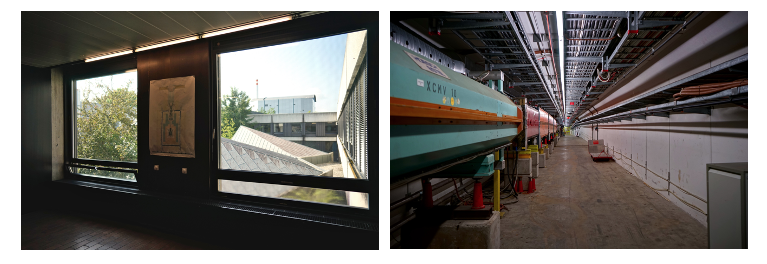
(左) ミュンヘンのラボ
(右) CERN
Q4. なぜ留学しようと思いましたか?留学先として日本を選んだ理由はありますか?
んん、正直、多くの他の人と同じでしょうか。よく、他の人たちから、留学した時にとても楽しかった事を聞きました。だから、自分も多分留学してみるべきだ、と考えたんだと思います。
なぜ日本だったかというと?えーと、ですね、学士課程が終わった後に、“今、ドイツから出来るだけ遠くに行きたい。ここと全く異なる何処かへ!”と思いました。それで、2週間の日本旅行をしたのは、2年前です。そして、わあ、日本ってなんて違うんだ!言語は、もちろんだけど、文化、食べ物も – わおっと感じました。私は、とてもこの旅行を楽しみ、また、日本に戻ってくる事を決めました。ミュンヘンに戻ってすぐに、1年間の留学に申し込みました。しかし、どの大学への留学にするかは、よく分かりませんでした。だから、私が働いていた研究室のダイレクターのSchoenert教授に聞いてみたのです。教授は、GERDA実験に取り組んでいるので、RCNSを私に勧めてくれました。教授が、KamLAND-Zenの進捗をスパイするために、ここに私を送ったのかどうか分かりませんが、かなり怪しいと思っています。
これが、私が東北大学に応募した理由です。2019年の9月末に、ここへ来日して、2020年8月まで滞在する予定です。
Q4. What brought you to study abroad? Why did you choose Japan as the destination to study abroad?
Hmm, to be honest, mostly other people. All the time I heard from other people, how much fun they had in their year abroad. That’s why I thought that maybe I should also give it a try.
Why exactly Japan? Well you see, after finishing my Bachelor theses, I thought “Now I want to get as far away from Germany as possible. Somewhere completely different”. That’s why I had a 2 weeks trip to Japan two years ago. And, boy, this place is different! Not only the language obviously, but also the culture and the food – wow. I really enjoyed my time here and promised myself to come back to this place. So right arriving back in Munich, I applied for a year abroad. However, I didn’t quite know at which university to apply. So I asked the professor Schoenert, the director of the lab I worked at. As he works on the GERDA experiment, he recommended me the RCNS. I’m not sure whether he sent me here in order to spy on the progress of KamLAND-Zen, however, I highly doubt that.
So this is the reason why I applied at Tohoku University. I came here at the end of September of 2019 and will stay here until August of 2020.
Q5. RCNSでは、どういった研究をしていますか?
現在は、KamLANDのために、韓国の原子炉の分析に取り組んでいます。2011年の東北大震災後、全ての日本の原子炉が、調査のために停められました。ごく最近になって、何炉か再稼働していますが、主要な炉は停まったままです。この新しい時間枠に、韓国の原子炉から生じる多数の原子炉ニュートリノをKamLAND実験で測定したという訳です。ニュートリノの平均基準値は、今、7の倍数までだいたい増えており、反ニュートリノ電子で、この特定L/Eレンジを測定したのは初めてだったでしょう。
しかし、原子炉ニュートリノの割合は、1週間あたり約10 から約 0.5まで落ちるので、測定された原子炉事象の量は、とても小さいです。ゆえに、さらにもっとbackgroundを減らす方法を見つけることに、興味があります。それをするために、遅延合致事象に対して、新しい尤度ベースの破砕除去(方法)を開発させなければなりません。現在、私は、その実施に取り組んでいます。この新しい除去(方法)が、ニュートリノ振動が3シグマ以上あると、私が主張できるようしてくれる事を願います。
Q5. What kind of research are you doing currently in RCNS?
Currently I am working on the Korean Reactor analysis for KamLAND. After the 2011 Tohoku earthquake, all Japanese reactors were shut down for inspections. Only recently have some been reactivated again, but the majority of them are still turned off. This means that in this new fimeframe, the majority of reactor neutrinos measured in the KamLAND experiment originate from Korean reactors. As the average baseline of the neutrinos has now almost grown by a factor of 7, it would be the first time to measure this specific L/E range on electron anti-neutrinos.
However, as the rate of reactor neutrinos has fallen from ~10 per week to about ~0.5 per week, the amounts of reactor-events measured is very small. Therefore, it is of interest to find ways to reduce the background even further. In order to do so, a new likelihood-based spallation cut has to be developed for delayed coincidence events. Currently, I am working on its implementation. Hopefully, this new cut will enable me to make a claim of more than 3 sigma for neutrino oscillation.
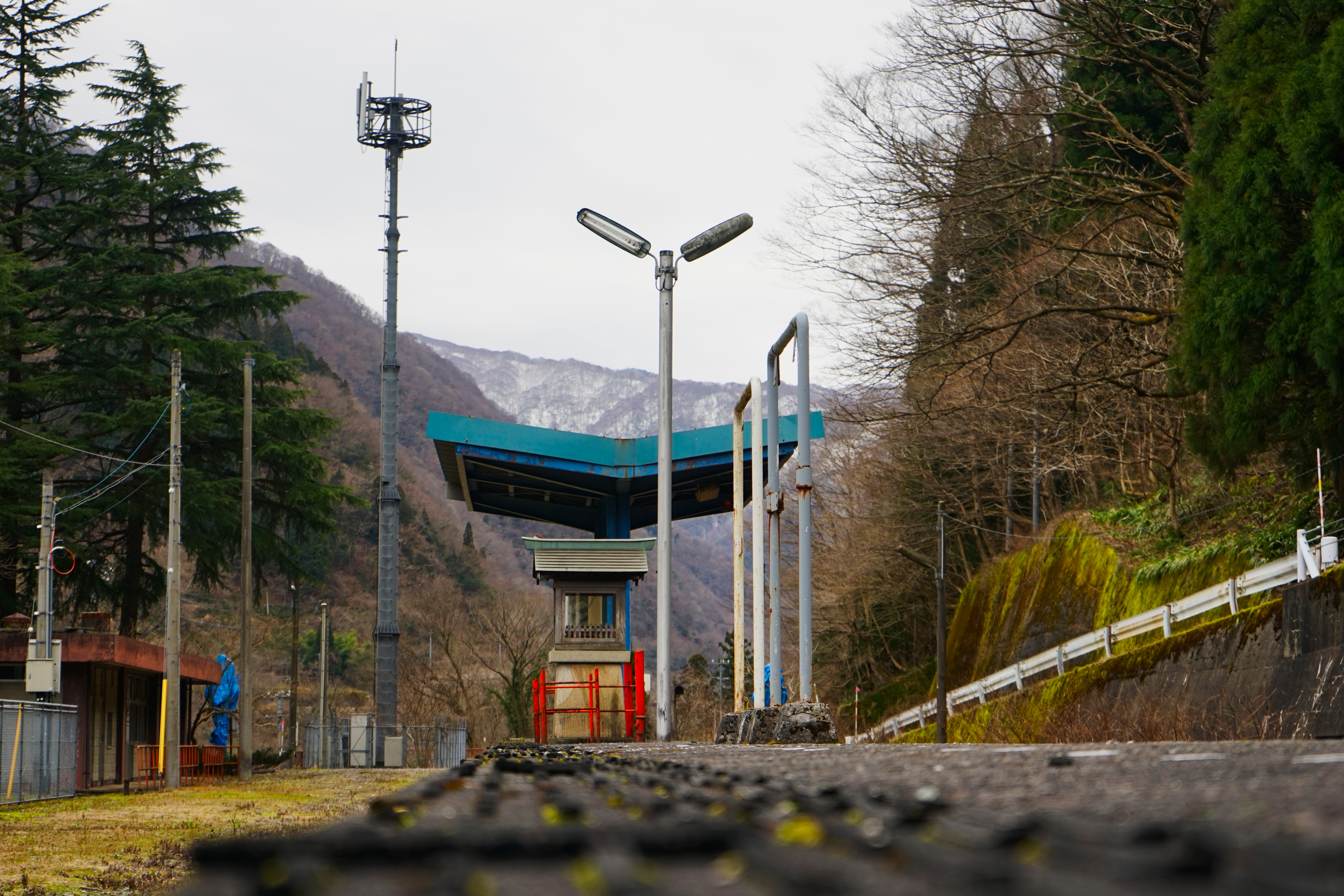
茂住駅を撮影
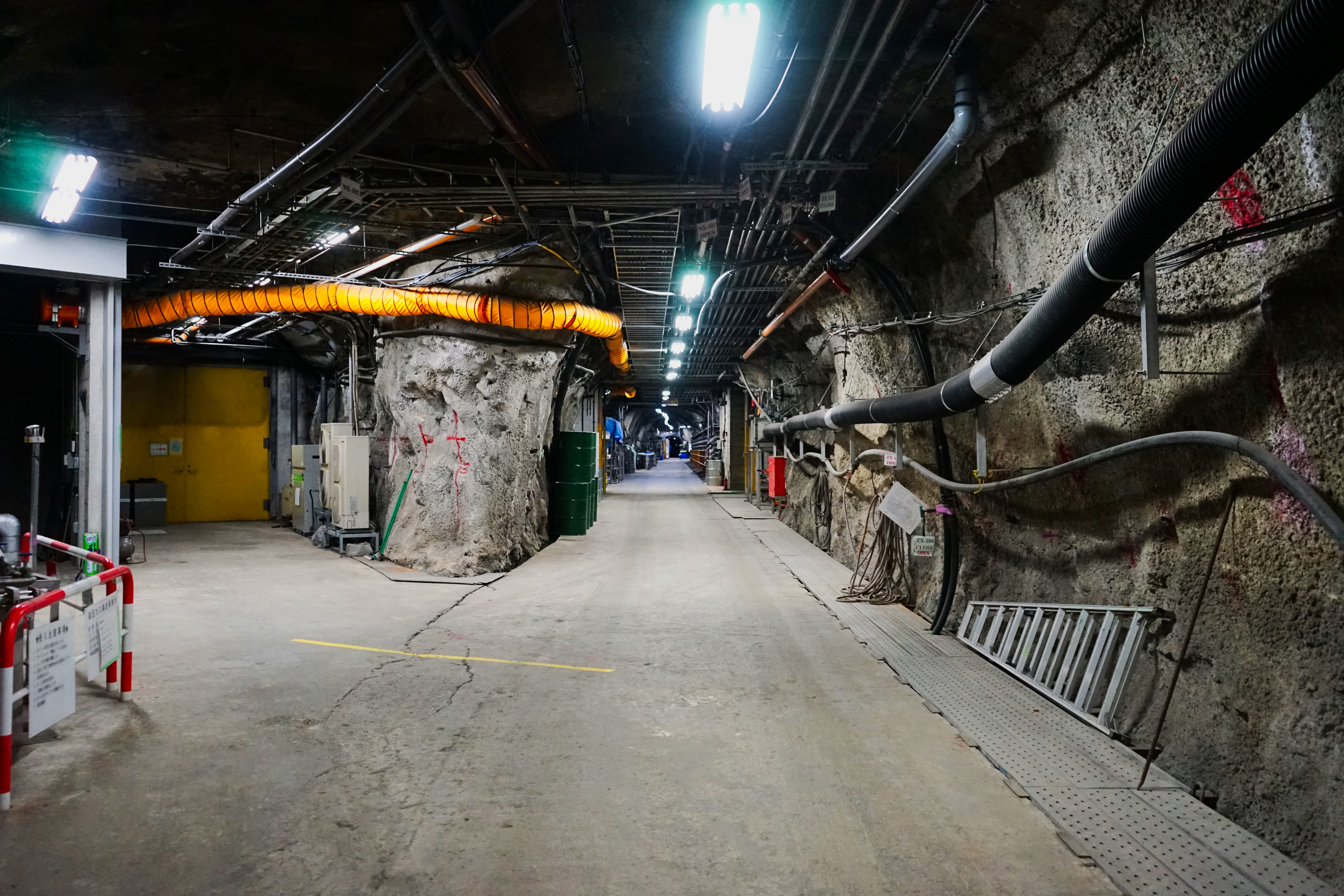
カムランド坑内
Q6. 日本語は、どのように勉強していますか?
実は、日本旅行から帰って来てからすぐに、大学で日本語を勉強し始めました。しかし、レッスンが週1回だけだったり、最初の何回かの授業時間は、進むのがとってもゆっくりだったりで、あまりためにはなりませんでした。本格的に勉強し始めたのは、日本に来て東北大学の日本語教育プログラムに参加してからです。理論的に、比較的初歩の文章のグラマーは充分理解しています。しかし、今のところ、聞き取り&話す力は、全て日本語で会話ができるには程遠いです。とはいえ、日本語をもっと学ぶのを楽しんでいますし、滞在最期には、日本語でちゃんと話せるよう上達しているのを楽しみにしています!
Q6. How do you study Japanese language?
Actually, right after coming back from my trip to Japan, I started learning Japanese at my university. But as the lessons were only once a week and the first few sessions were very very slow I was not able to learn that much. I only really started when I came to Japan and attended the JLPK course at Tohoku university. Theoretically, I know enough grammar to form relatively rudimentary sentences. But my listening and speaking skills are still by far not good enough to have a full conversation at this point. Never the less, I am looking forward to learning more and to improve enough to be able to speak Japanese at the end of my stay!
Q7. How is the life in Japan?
日本での生活を、とっても楽しんでいます。新型コロナウィルスや、地元住民の方達とほとんど会話が出来ないこともあり、とても厄介ではありますが、ラボでの時間や、ここで作った友達達との時間を楽しんでいます。仙台は、住むのに良い都市ですね。東京や大阪のように大きすぎず、でも、十分な物事が起き、することも沢山あります。
新型コロナウィルスの発生前に、私は友達たち(交換留学から成る)と、よく国内旅行をしました。東京、大阪、北海道を訪ねたり、近い場所だと、松島、蔵王、山寺などに行きました。春休み最後に、私は家族と国内旅行に行く予定があり、楽しみにしていたんです。でも、日本各地での新型コロナウィルス最近の発生状況から、私の家族は来日を延期することにしました。
Q7. 日本での生活はどうですか?
I am very much enjoying my life in Japan right now. Yes, COVID-19 and the fact that I still can hardly have a conversation with a lot of the local population, is quite bothersome. But I enjoy my time at the lab and with the friends that I made here. Sendai is a nice city to live in. It’s not too big as Tokyo or Osaka, but still enough stuff happens and you can do a lot of things.
Before the COVID-19 outbreak, my friends (who also consist mainly of exchange students) and I made a lot of trips around Japan. I visited Tokyo, Osaka and Hokkaido but also closer spots like Matsuhima, Mt. Zao and Yamadera. I was looking forward to traveling with my family at the end of the spring break. But due to the recent COVID-19 outbreaks all over Japan, they decided that they will postpone their visit.
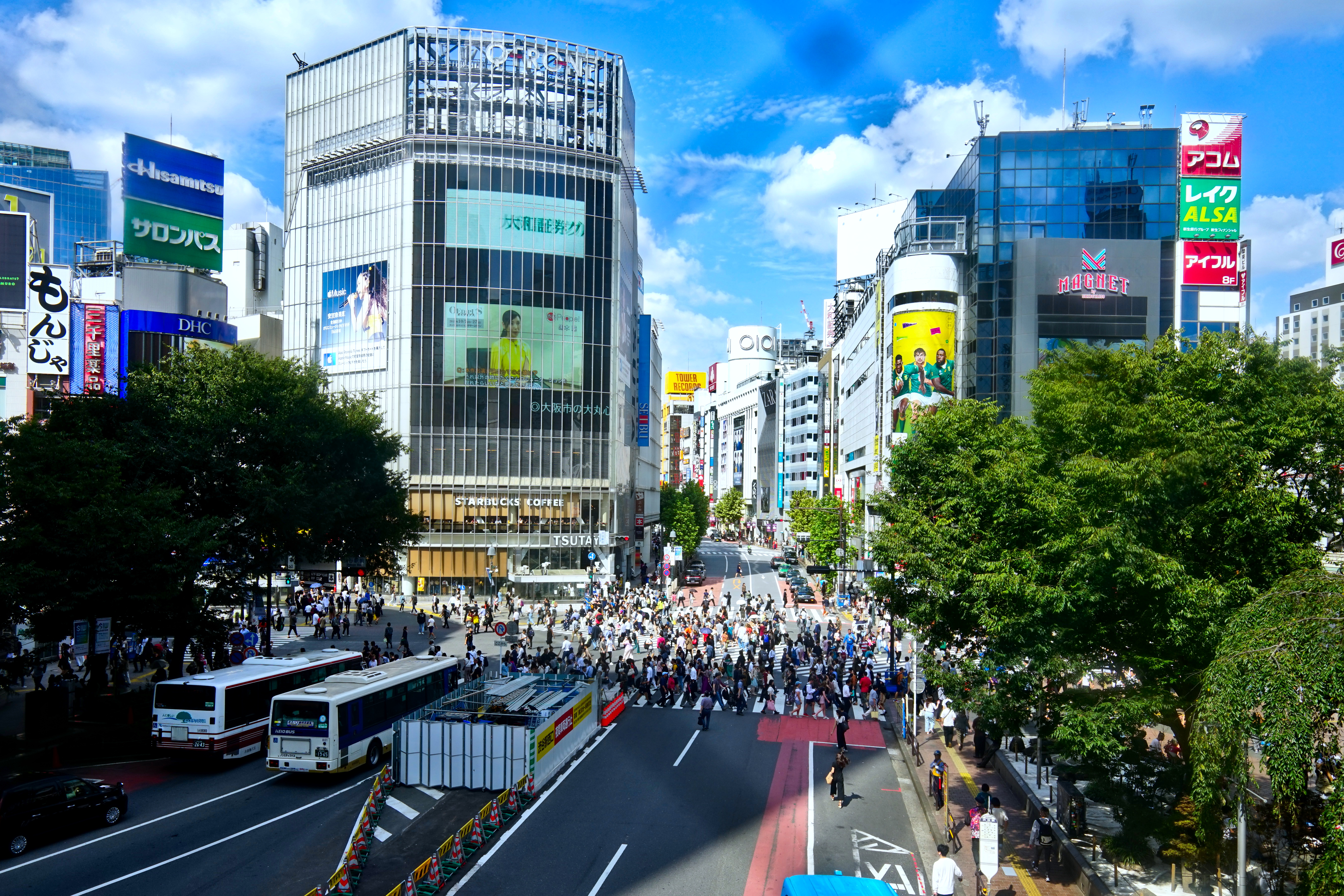
撮影せずにはいられなかった新宿
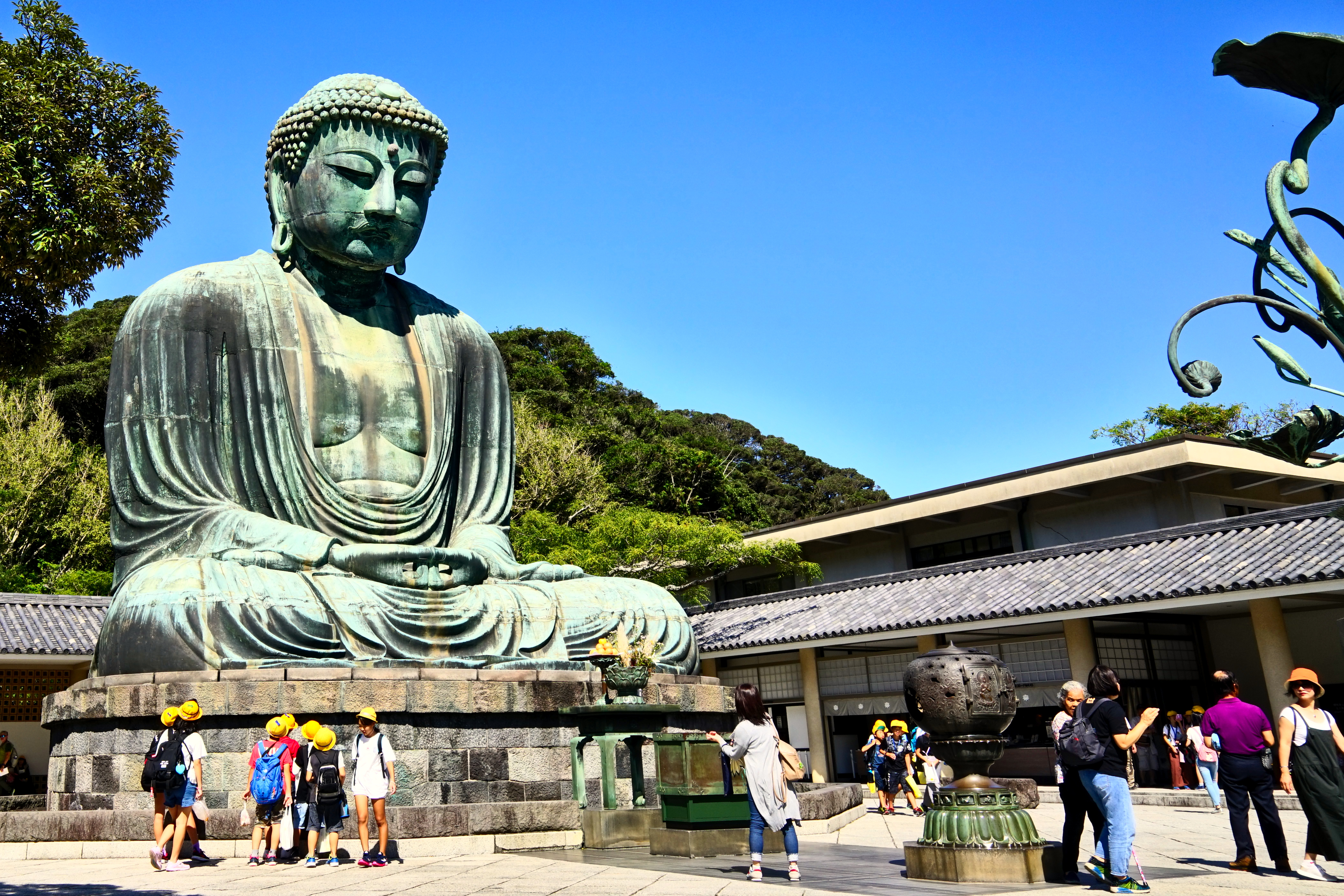
鎌倉へ小旅行。とってもキレイでした!
Q8. 最後に、将来の目標を教えて下さい。
おお、難しい質問ですね。正直言って、将来のことをまだちゃんと考えてはいません。現時点で言えることは、ドイツでは物理学者に最適な場所のようなものなので、銀行や保険会社では絶対に働きたくないと考えています。それゆえに、サイエンスが自分の行きたい場所かどうかを、もっと時間をかけてよく考えるために、博士号を取ろうかと考えています。しかし、博士号をドイツで取るかは決めていません、多分日本でかもしれませんし、全く違う何処かでかもしれません。卒業後どうするかを考えるのにまだ、1年以上あるので、じっくりと考えたいと思います。
Q8. Lastly, please tell us your future goal.
Oh, that’s a hard one. So to be honest, I haven’t really thought about them too much. All I know right now though is, that I definitely do not want to work in a bank or an insurance company, which are the most likely places to go for physicist in Germany. Because of that, I am thinking of making a PhD to have more time to consider whether science is the place I want to be. However, I do not know whether I want to make my PhD in Germany, or maybe in Japan or even somewhere completely else. I still have more than a year to think about what I want to do after my graduation and I do want to take my time with that.
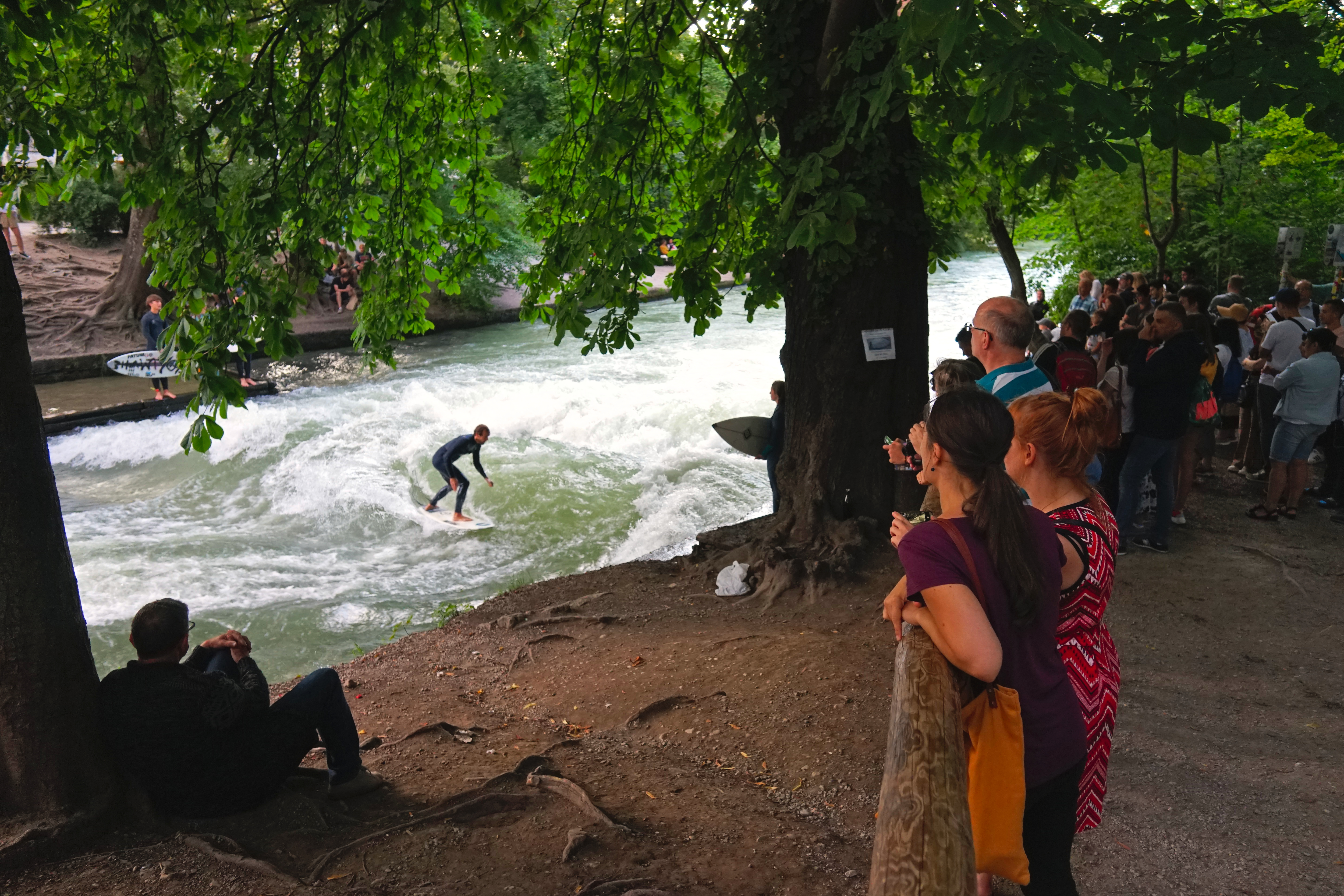
英国庭園内にサーフィンができる川が数カ所あります in Munich
Moritz君、インタビューへのご協力&素敵な写真、ありがとうございました!
(Thank you for your cooperation about interview & nice photos! )
インタビュー日付:令和2年3月17日
